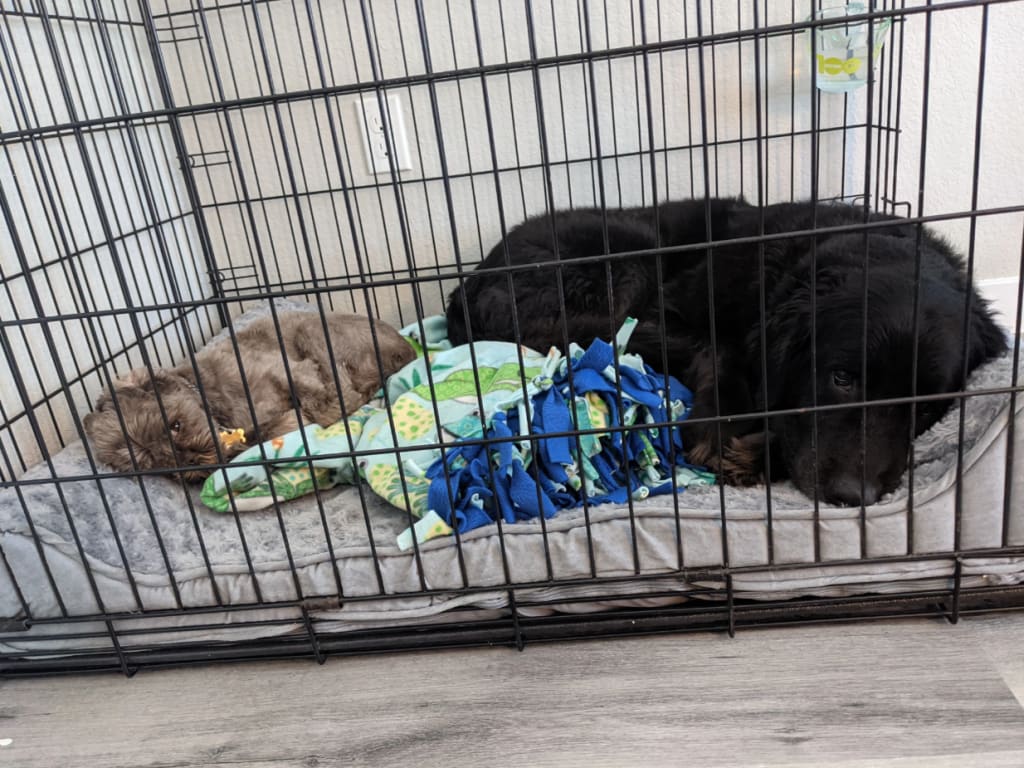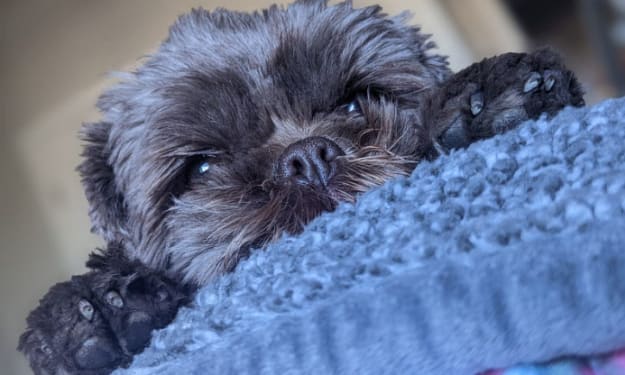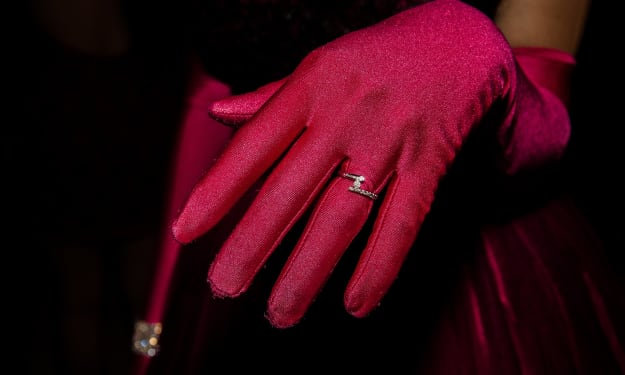More Tales of Gender Discrimination from a Former Cop
Profiled by the Fashion Police

Never fear, bigots: sexism is alive and well in the criminal justice system!
As a former law enforcement officer of 5 years, I encountered countless examples of this deeply-rooted institutional misogyny.
While a desire to combat hatred and make a positive impact was a large part of my motivation to enter the field in the first place, it also ended up playing a primary role in my decision to leave.
This article recounts one of the many (and I mean many) problematic experiences I endured during my time as an officer, contributing to both my eventual burnout and my diagnosis of CPTSD.
By sharing my story, I hope to shed light on the harassment and double standards faced by female officers while advocating for transparency and reform in the system overall.
Background Check: What Motivated Me to Join?
I’m a shy, queer, liberal female who loathes firearms and values effective communication. That is to say, I never really fit into the stereotypical cop persona.
I was initially inspired to study criminal justice and psychology after being sexually assaulted as a freshman in college. Upon graduation, I entered the police academy with a passion for victim advocacy and an earnest desire to unravel the motivations behind human behavior.
I was aware of some of the systemic issues in the field from a theoretical perspective, but from my privileged position as a middle-class white woman, I had yet to fully comprehend the scope of their pervasiveness.
I held the well-meaning (but ultimately naive) belief that enough good-hearted, sensible officers could bring essential change to the system. This rosy illusion has since been shattered by experiences such as the one below.
Bigoted Beginnings: Discrimination From Day One
It was the day of my very first interview for the role of Patrol Officer, and I was nervous as hell.
I’d applied to the largest, most “prestigious” department near my hometown, one boasting of extensive resources and rewarding career opportunities.
I was a senior in college at this point and had driven over 3 hours from my college campus the night before just for the meeting. I spent most of the drive going over my qualifications and rehearsing responses to potential interview questions.
In preparation for the occasion, I’d gone shopping with my mom for a new outfit. After much deliberation, we’d agreed on a flattering, but completely modest, sheath dress which hit just above my knees.
Over the dress, I wore a long-sleeved, flowy cardigan. The only skin showing was my calves, but even those were covered by nude tights.
I walked into the intimidatingly grandiose police station that morning feeling confident, prepared, and professional.
The feeling didn’t last long.
Duck and Cover (Yourself Up): The Male Gaze and Explicit Bias
It was a few minutes into the interview and things seemed to be going well. The much older male background investigator was asking me the usual questions about my studies and prior experience, and I answered with practiced confidence and respect.
Suddenly, he awkwardly excused himself from the office without explanation, leaving me sitting in the room alone for about 10 minutes. He was gone for so long that I began to worry he’d forgotten about me.
I began to wonder if this was some kind of test. Feeling watched, I sat with my hands in my lap and my legs crossed under my chair, trying not to shake or fidget nervously.
When the office door reopened, I was surprised to see a female detective enter, looking down at me disdainfully. The hair on my fully-covered arms rose along with my anxiety level. What was all this about?
She sat at the desk, curtly introduced herself, then got to the point: She’d been sent at the the male investigator’s request to talk to me about my clothing choice.
She went on to describe my outfit as something she’d wear on a night out. Her voice dripped with condescension as she stated that dressing too femininely wouldn’t get me any respect and would only serve as a “distraction to male officers”.
Was this what respect looked like, then?
I felt that familiar pit of shame women are taught to feel toward their bodies rip open in my stomach. “Stupid slut”, the critical voice in my head whispered to me as my cheeks burned. I was completely mortified.
It was as though she’d taken pleasure in the task. Her job of devastating me while reinforcing patriarchal conditioning complete, she flounced haughtily from the room, taking her poorly-fitting pantsuit with her.
In her eyes, I was clearly a fool not to expect that I’d be treated like a piece of meat the moment I walked in the door.
Maybe she was right.
21 Chump Street: Internalizing Misogynistic Beliefs
When the male investigator came back into the office, he made no mention of what had just happened, although he’d orchestrated it.
Worse yet, the interview was far from over. I was expected to continue as though I hadn’t just been humiliated on his orders.
I was so flustered, I could barely remember what questions were asked. I didn’t want to meet his eyes, didn’t want them looking at what he clearly saw as my scandalous clothing. My eyes burned with the tears that I flat-out refused to allow to escape in this setting.
I was already fully covered, yet I longed for more layers. Better yet, a hole I could crawl into and disappear.
Verdict: Guilty by Reason of Femininity
Looking back, that incident should’ve been the exit door from the very beginning. At the time, however, I was shamed into believing that I’d somehow been the one in the wrong.
To this day, I stand by that outfit as being the epitome of business casual. It wasn’t tight, short, or inappropriate or any way. My mother had helped me pick it out, for goodness sake.
The problem wasn’t the dress. The problem was that I was entering an overwhelmingly male-dominated profession while failing to show the proper amount of shame for my gender, my otherness.
Shockingly, I did actually end up getting hired by that department. There I went on to experience continued judgment, harassment, and a complete absence of support at every turn, regardless of what I was wearing.
On the way out of that horrible interview, I passed a glass case proudly displaying the uniforms the very first female officers wore when they were hired at the department around 1960: a pencil skirt and heels.
Veronica Wren Trauma Recovery Book Club
Becoming Abolitionists: Police, Protests, and the Pursuit of Freedom — Derecka Purnell
This post may contain affiliate links. This just means if you click a link and decide to make a purchase, I’ll earn a few extra pennies to support my book-buying habit (and do an elaborate, celebratory dance around my apartment just for you). My promise to you is that I’ll only ever recommend resources I truly believe in and have found beneficial in my healing journey. Happy reading!
I'm Glad You're Here
Trauma sucks. Recovery shouldn’t. Subscribe in one click to receive your FREE digital copy of my new guided journal, “Empower and Heal: 90 Days of Transformational Prompts for Trauma Recovery, Self-Discovery, and Growth”, delivered straight to your inbox!
About the Creator
Veronica Wren
Trauma sucks. Recovery shouldn't. Subscribe here for your FREE exclusive guided journal
❤️🩹 bio.link/veronicawren ❤️🩹
Domestic Abuse & CPTSD Recovery Coach






Comments
There are no comments for this story
Be the first to respond and start the conversation.